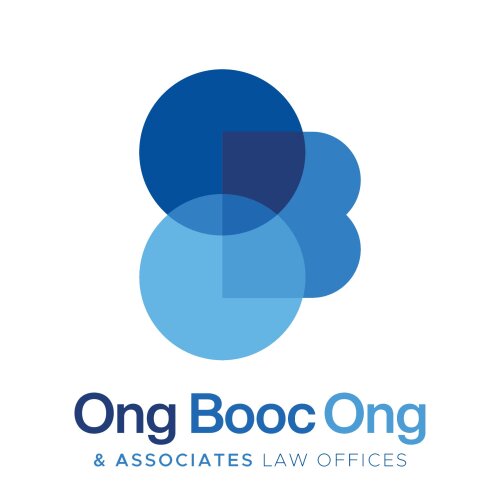Best Legal Document Lawyers in Cebu City
Share your needs with us, get contacted by law firms.
Free. Takes 2 min.
List of the best lawyers in Cebu City, Philippines
Philippines Legal Document Legal Questions answered by Lawyers
Browse our 10 legal questions about Legal Document in Philippines and read the lawyer answers, or ask your own questions for free.
- Correction of Surname on PSA
- The name of the father registered on my birth certificate was that of my mother's legal husband at the time of my birth, and I haven't used the surname of the said registered father ever. All of my legal documents use the surname of my biological father. Now, I wanted... Read more →
-
Lawyer answer by Recososa Law Firm
Hello:Presuming this case is within the Philippine jurisdiction, your situation involves what is known in law as a case of “filiation and legitimacy.” Under the Family Code, a child born during a valid marriage is presumed legitimate, which is why...
Read full answer - Patent Land Title
- Mother pa yung Tax declaration kahit may dalawang patent title na kase nakaligtaan iparala sa RD. yung isang anak na may patent title binenta sa po pero wala naman pong record sa RD. ano po kaya mas magandang gawin para maitala sa RD yung patent title nung 2011 pa.
-
Lawyer answer by NARAG LAW OFFICE
Second step kasi ang RD so need nyo lang gather Ng documents from the government agencies and ask for an assistance of a lawyer.
Read full answer - Can I buy a house from a seller with no deed
- The seller built a house and only has a bill of sale no deed. I want to buy the house from her. Can I buy it and have the deed made out in my name
-
About Legal Document Law in Cebu City, Philippines:
In the Philippines, a legal document refers to any document that has legal effect or relevance. This could include, but is not limited to, contracts, deeds, wills, and court judgments. The importance of a legal document stems from the fact that it can serve as proof in court and it is enforceable by law. In Cebu City, as with any part of the Philippines, the law recognizes the importance and validity of these documents. However, for a legal document to hold, it must be made in the proper form, with correct and clear language, and must comply with necessary requirements such as authentication, notarization or witnessing.
Why You May Need a Lawyer:
You may need a lawyer for various reasons when dealing with legal documents in Cebu City. For instance, a lawyer can help you understand the legal implications of a document you’re about to sign. If you’re drafting a legal document like a will or a contract, a lawyer can help ensure that your interests are properly represented and the document is legally sound. Further, certain legal documents require notarization or authentication-a process where a lawyer or a public notary confirms the identities of the parties, witnesses their signatures, and certifies the document.
Local Laws Overview:
While the laws governing legal documents are generally applicable throughout the Philippines, there might be regional regulations, practices, or cultures that may implicitly affect how these laws are applied in Cebu City. For instance, Cebu City is a known hub for real estate development in the Philippines-consequently, laws around property deeds, contracts and the like are often at play. Further, laws governing the use of Cebuano-a local language in Cebu City-in legal documents might also apply.
Frequently Asked Questions:
1. What makes a legal document valid?
In Cebu City, like the rest of the Philippines, a legal document must meet several requirements to be valid. These include voluntary agreement of parties, lawful object, and cause of obligation that is established.
2. Can a legal document be in Bisaya or Cebuano language?
While English and Filipino are the official languages used in court and legal documents in the Philippines, a legal document written in the local language might be recognized, provided it is duly translated in case of a dispute.
3. Why should a legal document be notarized?
Notarization makes a legal document enforceable in court. It certifies the authenticity of the signatures of the parties involved and the document itself.
4. Can I draft a contract by myself?
Although it is technically possible to draft a contract or any legal document by yourself, it is advisable to seek the help of a lawyer to ensure its legal soundness and that your interests are well-represented.
5. What do I do if I don't understand a legal document?
It's crucial to understand a legal document fully before signing. If you have difficulties understanding the implications of any part of such a document, you should consult a lawyer.
Additional Resources:
Public Attorney's Office (PAO), Integrated Bar of the Philippines (IBP) Cebu City Chapter, and the Department of Justice (DOJ) are some resources where you might get free legal advice. Additionally, key laws to refer could include the Civil Code of the Philippines and the Rules of Court.
Next Steps:
If you need legal assistance in dealing with a legal document in Cebu City, you could consult a local lawyer, make an appointment with IBP Cebu City Chapter or approach the PAO. It is crucial to bring all the relevant documents and information while seeking legal advice.
Lawzana helps you find the best lawyers and law firms in Cebu City through a curated and pre-screened list of qualified legal professionals. Our platform offers rankings and detailed profiles of attorneys and law firms, allowing you to compare based on practice areas, including Legal Document, experience, and client feedback.
Each profile includes a description of the firm's areas of practice, client reviews, team members and partners, year of establishment, spoken languages, office locations, contact information, social media presence, and any published articles or resources. Most firms on our platform speak English and are experienced in both local and international legal matters.
Get a quote from top-rated law firms in Cebu City, Philippines — quickly, securely, and without unnecessary hassle.
Disclaimer:
The information provided on this page is for general informational purposes only and does not constitute legal advice. While we strive to ensure the accuracy and relevance of the content, legal information may change over time, and interpretations of the law can vary. You should always consult with a qualified legal professional for advice specific to your situation.
We disclaim all liability for actions taken or not taken based on the content of this page. If you believe any information is incorrect or outdated, please contact us, and we will review and update it where appropriate.

















